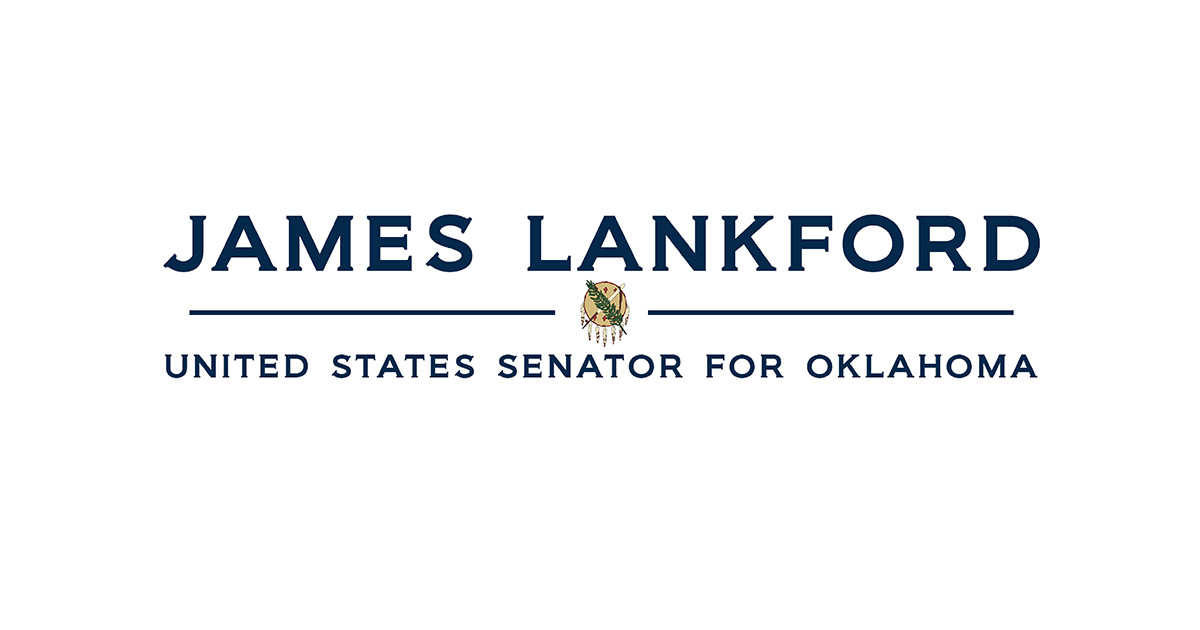Source: United States Senator for Oklahoma James Lankford
11.17.21
WASHINGTON, DC- Senator James Lankford (R-OK) issued a statement after a leaked memo from the Department of Health and Human Services seeks to repeal certain protections for religious freedoms and directly calls out Members who have been outspoken of HHS’ mishandling of conscience and religious freedom protections.
The leaked memo from HHS states, “Groups who share the prior Administration’s broad view of the application of RFRA or who will interpret this action as an indication that the Department is abdicating its responsibility for compliance with RFRA will likely issue strong negative reactions. This includes members of Congress who have been outspoken about OCR’s conscience and religious freedom activities and who have repeatedly asked questions about changes to OCR’s organizational structure and legal authority.”
“The memo is correct, I am an outspoken advocate for religious liberty, and I have a very ‘negative reaction’ to this Administration ignoring the First Amendment and failing to protect Americans of conscience,” said Lankford. “Americans do not support President Biden and his team’s absolute lawlessness when it comes to upholding Americans’ Constitutional rights—including our right to freely live our faith. The HHS memo leaked today is the second leaked document out of this administration in a week, which contradicts public statements from now two Cabinet secretaries, and illustrates the absolute disregard this Administration has for the American people. We, as Americans, do not discriminate against people of faith. This move by Secretary Becerra shows he will not keep the commitment to protect religious freedom for every American that he made during his confirmation hearing.
“This action from HHS means that the Office for Civil Rights will no longer uphold the civil rights of religious Americans. HHS clearly intends to go back to the days of light to no enforcement of the law that protect the rights of people of any faith.”
The HHS memo continues, “OGC advises that the best interpretation of RFRA is that it provides third parties the ability to make a claim, or present a defense, in response to a Government action.” In contrast, the Religious Freedom Restoration Act (RFRA) specifically says that its purpose is “to guarantee its application in all cases where free exercise of religion is substantially burdened.”
Senator Lankford did not support the confirmation of HHS Secretary Becerra, citing concern with his hostility toward conscience protections and lack of experience to lead the agency.
Lankford questioned Becerra during a Committee on Finance hearing in February 2021. Lankford reintroduced the Conscience Protection Act earlier this year to protect healthcare providers, including health insurance plans from government discrimination if they decline to participate in abortions.
Most recently, Lankford called out Becerra for allowing California to violate federal law and the conscience rights of Californians, who do not want to pay for abortions. Additionally, Lankford led a bicameral group of Senators and Congressmen in a letter to Attorney General Merrick Garland and Becerra demanding answers on why the Department of Justice (DOJ) dropped a lawsuit against the University of Vermont Medical Center (UVMMC), which has received federal funds from HHS since 1998, for forcing a nurse to assist with an abortion procedure against the nurse’s registered conscience objections and in clear violation of long-standing federal law.
Excerpt from February 2021 hearing when Lankford question Becerra on enforcing existing law to protect Americans’ conscience rights in HHS
Lankford: As California Attorney General, you sued the federal government over 100 times, including multiple times dealing with issues about conscience protections that you would specifically have to now enforce on the other side of it, and so I’m trying to get some clarity on this. There’s a Conscience and Religious Freedom Division at HHS. They have compiled the 25 different conscience laws that already exist in statute, that are law, and to say that HHS in the past wasn’t always consistent in enforcing those laws, but they were going to actually be consistent because they were laws on the books. So my question is: will you continue to enforce existing federal law on conscience issues when you get to HHS? And what will you do with the conscience and religious freedom division?
Becerra: …I believe deeply in religious freedom, and I will make sure that as Secretary of HHS that you will know that I will not only respect the law when it comes to these issues of religious freedom, but I will enforce them as Secretary of HHS within my department.
Lankford: So the challenge that I have in just processing through this, just some of the history there, obviously when you were attorney general you had suits that went all the way to the Supreme Court that the Supreme Court overturned. Some were decisions specifically on conscience issues, for instance the issue of the FACT Act that came out of California requiring pro-life facilities to have to post in their facility: here’s a way to get an abortion instead of having your child up for adoption, which feels very much like promoting abortion, not just providing abortions, a very different issue on that. You argued that case all the way to the Supreme Court, ultimately lost because the Supreme Court said what’s obvious to everyone: you can’t require someone to say something they disagree with. That’s a conscience issue. Another conscience issue was the Little Sisters of the Poor and other groups like that that said, ‘Hey, we don’t want to participate in abortion-related health care, and about 28,000 Californians lost their health care that fit in with their conscience, based on how you were combatting with those folks. So, help me understand the disparity between those two.
###
